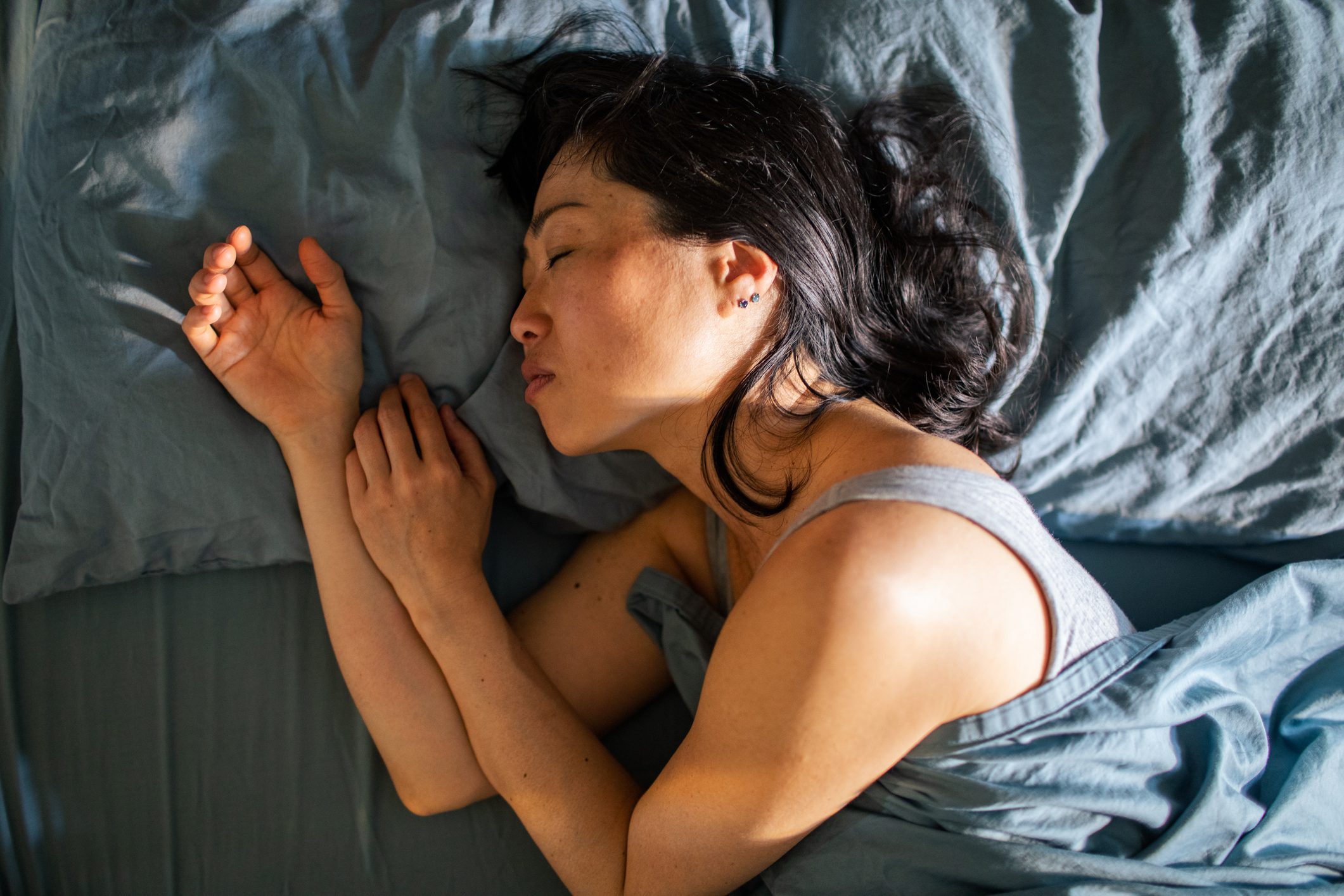Researchers from Baylor University studied 90 participants and discovered that minor sleep changes can have a major influence on your day-to-day life.

New Study: Just 46 More Minutes of Sleep Yields a Cheerful Health Benefit

Getting a good night’s sleep is crucial to your physical health, reducing your risk of chronic illness, boosting your immune system, and improving function in your essential organs. In fact, according to the Centers for Disease Control and Prevention (CDC), getting 7 to 9 hours of high-quality shuteye per night “appears to be as important for living as food and water.”
Now, a new study published in The Journal of Positive Psychology has found that there’s another way that getting more sleep could help your health. It says that increasing your sleep amount, even in small increments, can have a profound effect on your mental health and mood.
The team behind the study consisted of a group of researchers from the department of psychology and neuroscience at Baylor University in Waco, TX. They built their work on the previously established finding that “people who are grateful, resilient and flourishing in life show better health, including better sleep. This correlational finding is typically attributed to personality factors or to positive outlooks causing better sleep,” they wrote.
For this study, they then investigated reverse causation to learn whether one’s volume of sleep could have an effect on feelings and expressions of gratitude, resilience, and flourishing.
The researchers instructed 90 adult subjects to follow one of three sleep schedules: one of restriction, one of expansion, or one with no guidelines beyond following their natural urge to sleep. Tracking their data across the span of a workweek, the team found that those who extended their sleep by just 46 minutes displayed more “gratitude, flourishing and prosocial behaviors” in the short term. Meanwhile, restricted sleep had the opposite effect.
“A common explanation is that short sleep undermines emotional regulation leading to worsened emotional reactivity; consistent with this view, experimental studies have found that sleep restriction worsens feelings and expressions of anger, hostility, anxiety and irritability, especially in the context of stressors,” the researchers wrote. “However, sleep restriction studies that measured both positive and negative emotional states have typically reported that sleep loss changes overall mood primarily by reducing positive emotions.”
In other words, getting too little sleep appears to be detrimental to mood. But getting an extra few minutes of shuteye can enhance markers of positive mental health from baseline levels, giving us all a good reason to snooze a little longer.
For daily wellness updates, subscribe to The Healthy by Reader’s Digest newsletter and follow The Healthy on Facebook and Instagram. Keep reading:




















